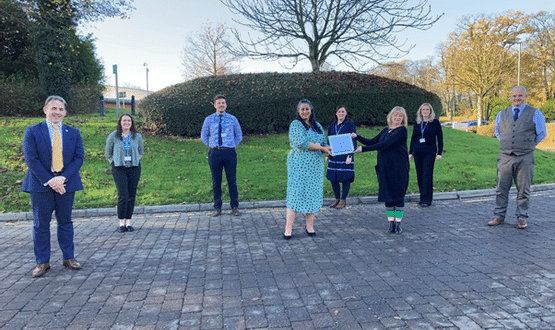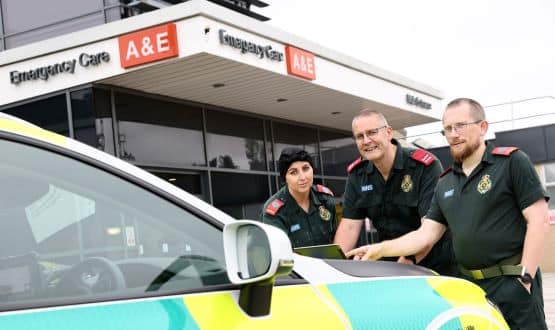Lancashire and South Cumbria NHS FT celebrates GDE accreditation

Lancashire and South Cumbria NHS Foundation Trust has become the first mental health trust to receive its Global Digital Exemplar (GDE) accreditation.
The trust was presented with the accreditation by NHSX and NHS Digital and is now recognised as being a Digital Leader. At the same time, the trust has also been awarded HIMSS Level 5 status.
Launched after the 2016 Wachter Review, the Global Digital Exemplar (GDE) programme aimed to create a “cohort of digitally advanced exemplar provider organisations” which were then expected to pass their learnings to “less digitally-mature ‘fast follower’ provider organisations” in a bid to enable large-scale digital transformation across the NHS in England.
Lancashire and South Cumbria’s GDE journey started in 2018 when it was selected to be a ‘fast follower’ to GDE Berkshire Healthcare NHS Foundation Trust.
Since then, the trust has rolled out a number of digital projects and has also acquired mental health and learning disabilities services in South Cumbria from Cumbria Partnership Foundation Trust in October 2019.
Such projects have included clinical decision support, e-learning and digitising secure care.
Speaking to Digital Health News, Ben Rigg, who is head of digital programmes at the trust, said one of the successes of Lancashire and South Cumbria’s GDE programme has been online consultations.
“A main project for me was online consultations and the deployment of the Attend Anywhere platform – that was a big success on the programme because we had plans to deploy it when we were awarded GDE status but then Covid arrived, and we accelerated our plans,” he said.
“It was probably going to take up to a year to deploy across the organisation and we ended up deploying it within three months everywhere.”
Since it was rolled out, there have been 2759 user accounts set up and a total of 14,115 consultations were held.
Looking at things post-pandemic, Rigg said the trust will assess what appointments need to be face-to-face and what can continue to be carried out online.
“Online consultations are something that the trust could now not have, it is used by the majority of our services,” he added.
Speaking of Covid, Rigg said the pandemic threw some challenges for the trust’s digital programme but it wasn’t all bad news.
“One of the biggest changes that we made with the programme was around Covid and its impact, but it wasn’t all that everything got delayed, some of it was focusing our energy elsewhere and deploying things quicker,” he said.
“Also, as an organisation, we took on South Cumbria in October 2019, which was a GDE Fast Follower as well, so when we merged with them, it was quite a big change to the programme as we brought their elements into ours.”
Positive reaction
Rigg said feedback from staff has been positive, adding that the trust has placed heavy emphasis on projects being clinically-led.
“Some projects were scaled back because we had grand plans to do things like virtual reality because it was a shiny thing, but when we started the process and engaging with the clinical team and patients, it wasn’t something that actually brought a lot of benefit,” he added.
Looking towards the future, Rigg said the trust has put together a new digital strategy which will build on what has been achieved during the GDE programme. The trust is also planning on looking into what needs to be done in order to achieve HIMSS Level 6.
“Ultimately, we want to build on the good work that has already been done,” he added.
‘Fine testament’
Dr Ayesha Rahim, deputy chief medical officer and CCIO at the trust, said the accreditation and achievement of HIMSS Level 5 is a “fine testament” of the hard work carried out by her colleagues across the organisation.
She added: “However the real achievement is to have made tangible improvements to clinical outcomes for patients through many of our projects.
“Technology is simply an enabler to delivering high quality care, so by keeping our focus on the end result rather than “shiny tech”, we ensure that we always keep our patients in mind.
“One of the other fantastic things to come out of the programme for us is the skills that we have learned, and the fact that we can share this best practice with our regional and national partners, as well as learning from other organisations.
“Spreading innovation and value-adding practice is a core part of the GDE programme, and we are very proud to have been able to contribute to this.”




